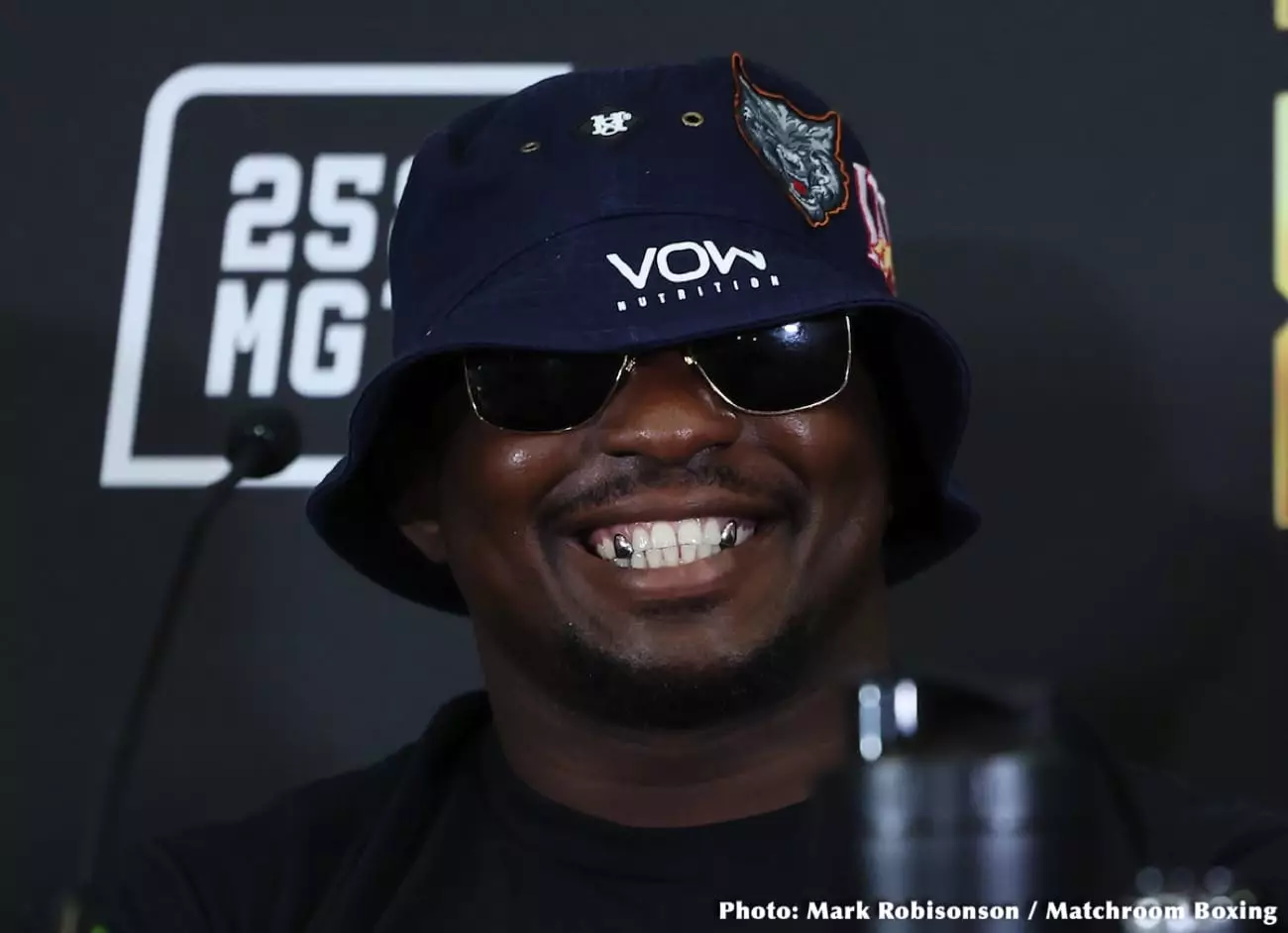In a sport notorious for its volatile characters and grand proclamations, Dillian Whyte has stepped into the spotlight once more, making waves after his recent bout against Ebenezer Tetteh. This 36-year-old heavyweight, reveling in the aftermath of a rather chaotic win, has thrown some audacious words into the ring, claiming that Anthony Joshua—once seen as a formidable opponent and heavyweight champion—is “finished.” The context behind this assertion takes us through a landscape where once-esteemed fighters face the reality of father time, unexpected defeats, and shifting dynamics within the boxing community.
Whyte, with a record of 31 wins and 3 losses, clearly seeks to reinvigorate his rivalry with Joshua, now 35 and holding a record of 28 wins and 4 losses. After a controversial series of fights and setbacks, Joshua is looking for his next shot at redemption, especially now that a bout against Tyson Fury has been sidelined. As Joshua explores potential opponents for his next fight, Whyte has thrown his name into the hat, suggesting that their rivalry could be reignited.
Despite the glint of bravado in Whyte’s comments, it’s essential to consider the foundation upon which his claims are built. In his last fight against Tetteh, Whyte’s performance was marked by a distinct lack of finesse, leading many to question his readiness to take on elite competition like Joshua. While the match had its entertaining moments, it was riddled with the kind of errors and fatigue one would expect from a fighter who might not be at his peak. This leads us to wonder: Can Whyte truly end Joshua’s career, or is he simply grasping at straws, hoping to spark interest in a rematch?
Whyte’s assertion that Joshua “made a huge mistake” by bypassing a rematch with Daniel Dubois raises interesting points about strategy in boxing. The opportunity to directly rectify a defeat and reclaim his standing was at Joshua’s fingertips, but he opted to pursue other paths instead. As fans and analysts dissect these decisions, Whyte’s comments may resonate with some who see these choices as signs of vulnerability in Joshua’s career.
Both Joshua and Whyte find themselves in a precarious position as they navigate their legacies within heavyweight boxing. While Whyte has not enjoyed the same tremendous success as Joshua in terms of titles and accolades, the rivalry creates an interesting dynamic—one which promoters, like Eddie Hearn, eagerly want to capitalize on. There’s no denying that a fight between the two draws immense attention, regardless of their recent performances. Fans relish the idea of a clash between former rivals, a setup that harkens back to their early days in boxing.
What complicates matters, however, is the financial incentive that looms large over both fighters. Whyte may not be the most formidable opponent available right now based on his recent showing, but the payday that comes with a matchup against a name like Joshua is a huge draw. Joshua remains a ticket-seller, and a bout for both personal and historical significance could reignite fading flames of their past.
A New Era of Questions and Scenarios
The landscape of heavyweight boxing today is fraught with questions. Can Joshua regain his initial standing among the elite, or is he destined to become a stepping stone for rising talents? Whyte’s bravado emerges amidst this uncertainty but could also reflect a deeper awareness of his own vulnerabilities in the ring. Both fighters carry burdens of their past—one of glory and one of disappointment—but the prospect of a rematch could reignite both their careers.
Boxing enthusiasts love an underdog story, and from the ashes of each fighter’s struggles could emerge a thrilling narrative. Whyte’s belief that he can finish what many perceive as a faltering Joshua adds an enticing layer to this potential rebirth of rivalry.
Though skeptics abound, the idea of a showdown invokes excitement. Indeed, don’t be surprised if this long-anticipated battle comes to fruition, for in boxing, the echoes of history continue to shape the present, reminding us that rivalries can never truly remain settled.

